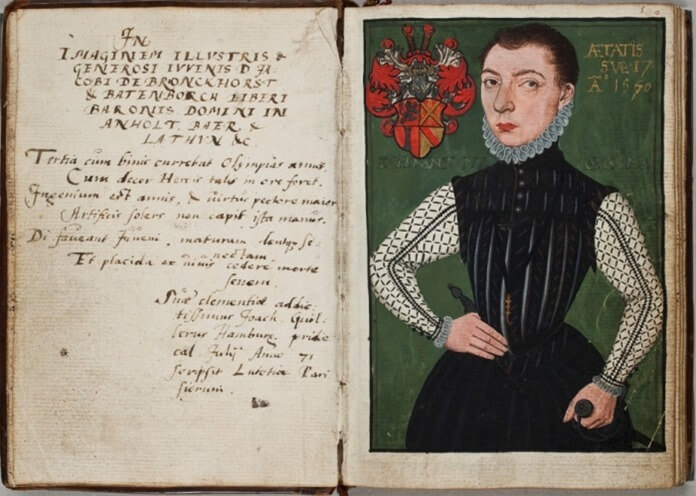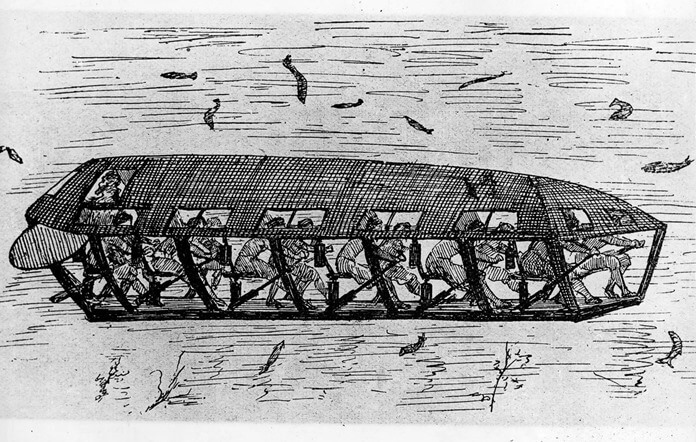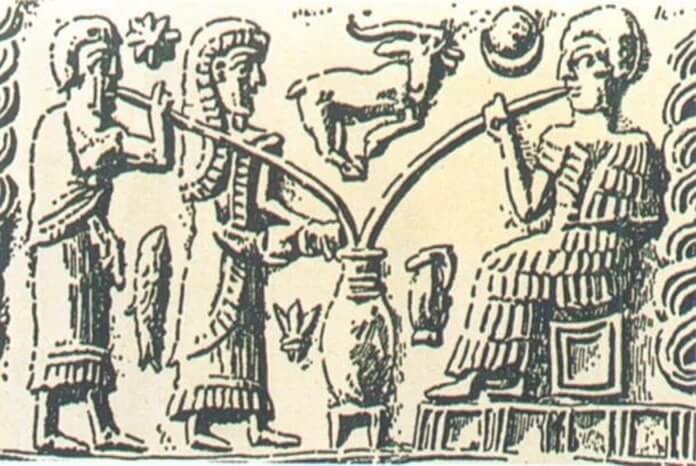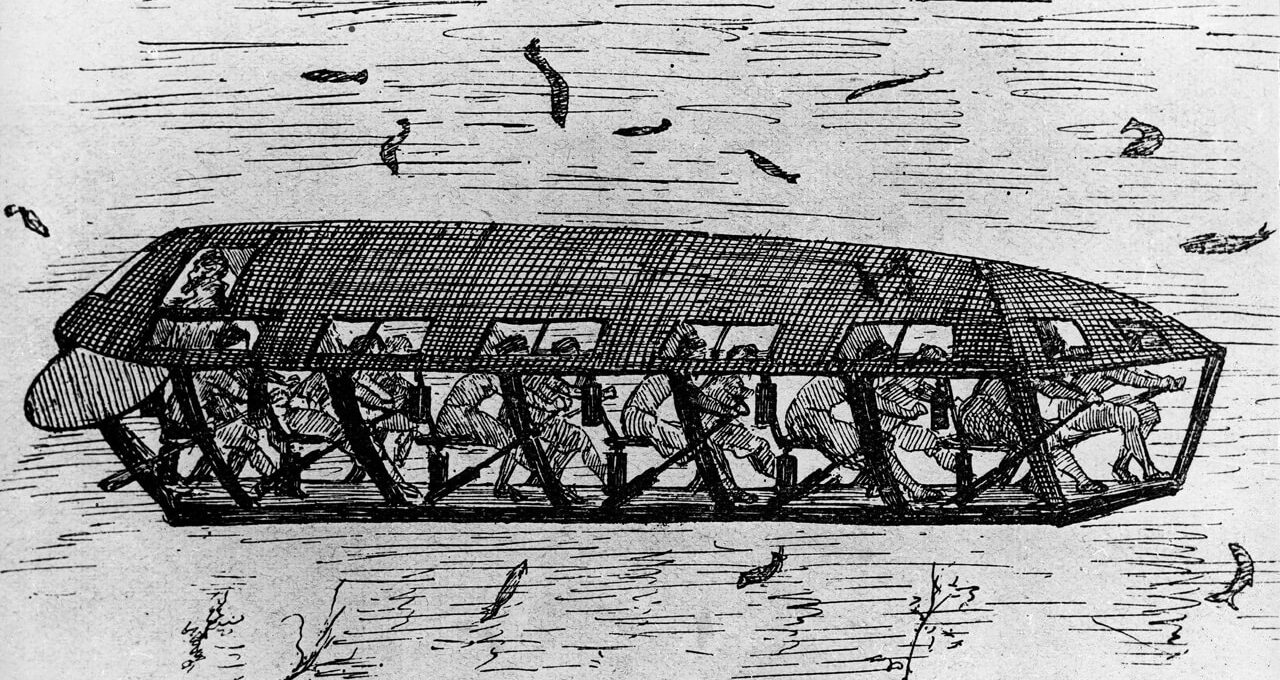We live in a world full of inventions. Things like social media, automatic doors, and video games have only become widely available in the last hundred years or even earlier.
But in some cases, what we think of as recent additions to civilization have actually been with us for centuries. Here's Top 10 Things That Are Older Than We Thought.
10. Video games (idea originated in 1947)
 If you thought Pong's debut in 1972 marked the beginning of video game history, you were off by decades. The pioneer was physics professor Thomas Goldsmith Jr., who patented an electronic arcade game based on old military radars from World War II.
If you thought Pong's debut in 1972 marked the beginning of video game history, you were off by decades. The pioneer was physics professor Thomas Goldsmith Jr., who patented an electronic arcade game based on old military radars from World War II.
The "cathode ray tube amusement device," as he called it, consisted of a cathode ray tube connected to an oscilloscope that simulated the control of a rocket. By controlling the oscilloscope beam and defocusing it, the player "hit" targets depicted on an overlay placed on the screen.
But Goldsmith Jr. was never able to raise enough money to commercially release his game.
9. Digital music players (invented in 1979)
The iPod isn't the first portable music player. That title belongs to the IXI system, created more than 20 years ago by amateur inventor Kane Kramer and his best friend James Campbell.
When they pitched their digital audio player to investors, it was the size of a pack of cigarettes and featured a display and a memory chip capable of storing three and a half minutes of music. No one had personal computers at the time, so IXI owners would have to visit stores to download new music.
In a 2004 interview with The Guardian, Kramer stated that after forming IXI his company had "orders worth £60 million" (worth at the time) from the record industry.
However, due to disagreements within the board of directors, and the subsequent failure to raise the £60,000 needed to renew the patent, it lapsed and entered the public domain.
8. Automatic doors (invented around 50 BC)

The automatic door we are used to was invented by two Texans in 1954, but the idea was first introduced by a Greek mathematician and engineer named Heron of Alexandria.
He devised the self-opening door as a way to add drama and seriousness to religious ceremonies. The complex mechanism, located underground, used pipes, buckets (as counterweights), and scales. It was designed to make true believers think that a divine being had opened the doors with invisible hands.
Heron even had a system for creating a trumpet sound when a door opened, because it was not appropriate for a staid Greek god to appear without fanfare.
7. Vending machines (invented around 50 BC)
Another contribution to world culture by Heron of Alexandria. He invented a device similar to a vending machine so that people would not abuse the holy water in Egyptian temples.
The machine worked much like modern vending machines: You put a coin in a slot, and the weight of the coin opens a valve, allowing holy water to flow out. But eventually the coin slides off the tray, and the valve closes. So the first vending machine wasn't trying to entice people with coffee or snacks, just good old H2O, albeit blessed by Egyptian priests.
6. Social networks (invented around 1560)

In the 16th century, there was no VKontakte or Facebook, but young people in what is now the Netherlands invented something similar. They called it “alba amicorum,” which is Latin for “friends’ books.” The old social networks worked almost the same way as modern ones, except that everything was contained in paper books that were distributed among friends and acquaintances.
When it was your turn, you could write in the alba amicorum gossip about friends, tell a joke, share lyrics from your favorite songs, and even argue about politics.
5. Reality TV (invented in 1973)
 The 1973 series Modern Family followed Santa Barbara housewife Pat Loud, her husband Bill, and their five children through a difficult year. The show was a hit, with 10 million viewers each week watching Pat and Bill's marriage fall apart and their son Lance come out of the closet.
The 1973 series Modern Family followed Santa Barbara housewife Pat Loud, her husband Bill, and their five children through a difficult year. The show was a hit, with 10 million viewers each week watching Pat and Bill's marriage fall apart and their son Lance come out of the closet.
Not only was Modern Family the first reality show, it was also the first to feature a gay character in prime time.
4. Music Streaming (Invented in 1898)
 The concept of streaming music first emerged in the basement of a New York City building with a giant device called the Telharmonium, patented in 1898. Invented by a lawyer named Thaddeus Cahill, it streamed music to subscribers over the phone or through horn speakers. Not for free, of course.
The concept of streaming music first emerged in the basement of a New York City building with a giant device called the Telharmonium, patented in 1898. Invented by a lawyer named Thaddeus Cahill, it streamed music to subscribers over the phone or through horn speakers. Not for free, of course.
As one reporter who observed the device in action explained, "the electrical waves of the Telharmonium, sent out by the great central machine, are converted by the familiar apparatus of the telephone into sound waves and reach our ears in the form of symphonies, lullabies, or other music at the pleasure of the performer."
However, the machine created strong interference on the telephone line, and only three copies of the Telharmonium were built.
3. Batteries (invented around 250 BC)
The battery is another of those modern things that is much older than we thought. The so-called Baghdad Battery, discovered near Baghdad in 1938, was a clay vessel with a bitumen plug. An iron rod, passing through the bitumen, was surrounded by a copper cylinder.
Tests at the General Electric lab in Massachusetts showed that the vessel was once filled with a substance such as vinegar or wine. And when the researchers made a copy of the “Baghdad battery,” it could produce about 1.5 volts of electricity! However, the researchers have no idea who the consumer of such a battery was. Perhaps it was a one-time creation of an unknown inventor.
2. Submarines (invented in 1578)
 Probably many of you have read "20,000 Leagues Under the Sea" and imagined yourself if not as Captain Nemo, then as a guest of his amazing submarine "Nautilus". But the innkeeper and part-time mathematician named William Bourne, who lived in the 16th century, did not read Jules Verne's book for an obvious reason. But he invented his own submarine in 1578.
Probably many of you have read "20,000 Leagues Under the Sea" and imagined yourself if not as Captain Nemo, then as a guest of his amazing submarine "Nautilus". But the innkeeper and part-time mathematician named William Bourne, who lived in the 16th century, did not read Jules Verne's book for an obvious reason. But he invented his own submarine in 1578.
Bourne's prototype submarine, the plans for which he published in his book Inventions or Devices, was made of wood, surrounded by waterproof skin, and propelled solely by oars. But since Bourne was more of a theorist than an engineer, he never had the opportunity to test his theories.
However, in the 1620s, Cornelius Drebbel, the “court inventor” of England’s King James I, built what is commonly referred to as the first working submarine. It was essentially just a well-insulated rowboat with 12 oarsmen that sailed down the River Thames at depths of up to 5 metres below the surface and could hold up to 16 passengers.
1. Beer (invented around 6000 BC)

Beer is an invention so old that the ancient Sumerians were drinking it (and, presumably, sometimes too much of it) long before the wheel was invented. As World Guide to Beer author Michael Jackson once said, “There’s a pretty respectable academic theory that civilization began with beer.”
But that earlier beer of 6000 BC had nothing in common with what we drink today. This drink was brewed without hops, from barley and spelt, adding aromatic herbs for aroma. The strength of Sumerian beer was 3-4%.
And since it was impossible to do this without divine help, the Sumerians “invented” a special goddess, Ninkasi the Light-Streamer, who supervised the brewing process.














Оставить Комментарий